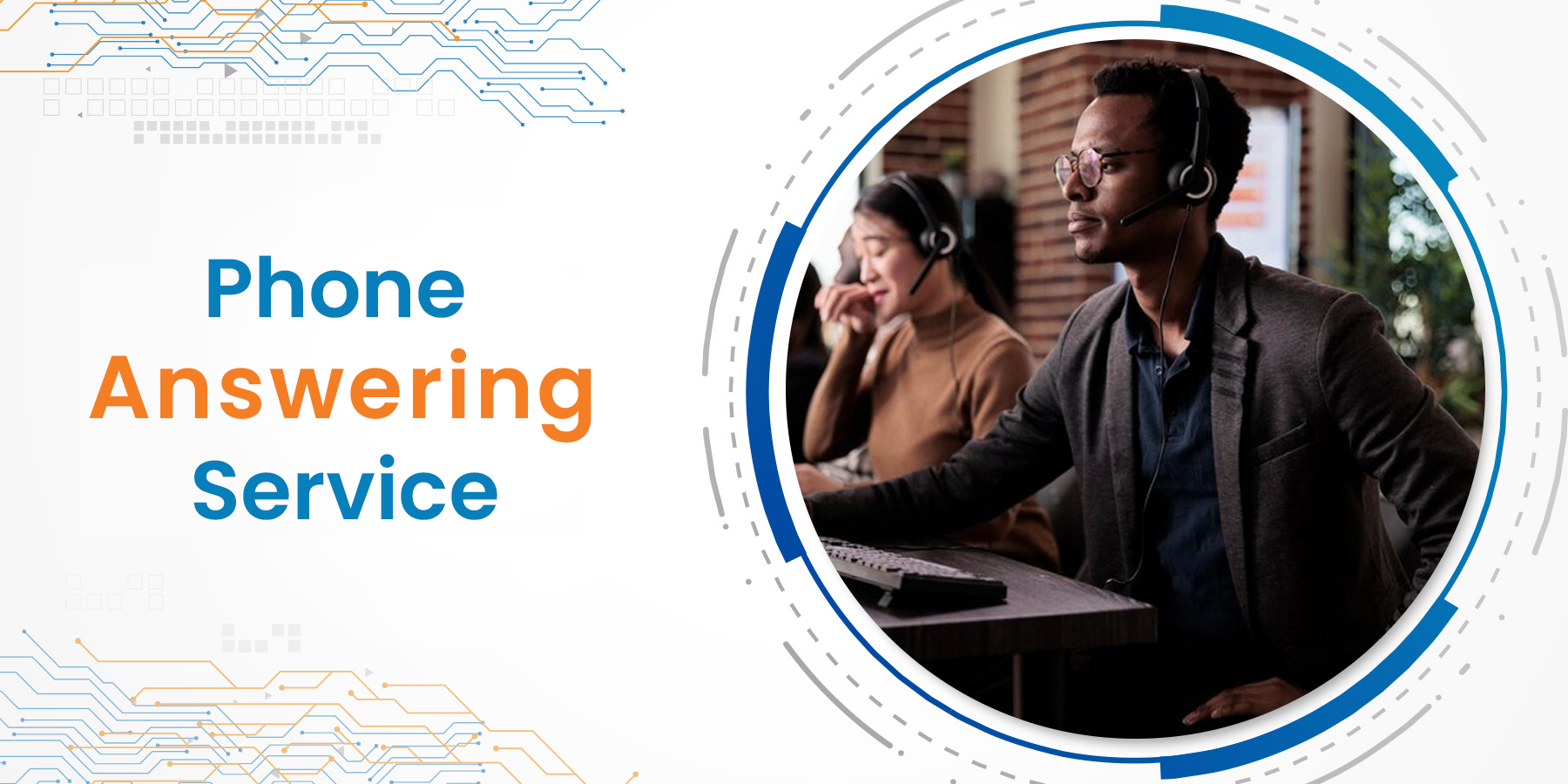Virtual Answering Systems: 6 Types of VAs on the Market
Last updated on May 6th, 2024
Virtual answering systems, also known as virtual call answering assistants or virtual phone answering services, are an excellent solution for businesses looking to improve customer service and streamline operations. These systems allow companies to redirect calls to virtual assistants (VAs), also known as virtual call assistants or virtual phone assistants, who can handle a wide range of tasks, including answering questions, taking orders, scheduling appointments, and providing support.
As can also handle virtual phone answering services, such as virtual assistant phone answering service and virtual telephone answering service, to help businesses manage their calls more effectively. With a virtual or virtual assistant call answering service, companies can ensure that their calls are answered promptly and efficiently, no matter the time of day.
Overview of the Benefits of Virtual Answering Systems
Virtual answering systems are an increasingly popular solution for businesses looking to improve customer service and streamline operations. These systems allow companies to redirect calls to a team of virtual assistants (VAs) who can handle a wide range of tasks, including answering questions, taking orders, scheduling appointments, and providing support.
There are many benefits of using a virtual answering system for your business. Some main benefits include
- Improved customer service: Virtual answering systems allow businesses to provide high-quality customer service around the clock, even when in-house staff is unavailable. This can help to improve customer satisfaction and loyalty.
- Increased efficiency and productivity: By redirecting calls to VAs, businesses can free up their in-house staff to focus on more high-value tasks, leading to increased efficiency and productivity.
- Cost savings: Virtual answering systems can be more cost-effective than hiring additional in-house staff, particularly for small businesses.
- Flexibility: Virtual answering systems allow businesses to adjust their resources and support as needed based on their business’s specific needs and goals.
Overall, virtual answering systems can provide businesses with many benefits, including improved customer service, increased efficiency and productivity, cost savings, and flexibility.
Types of Virtual Assistants
Many virtual assistants (VAs) are available to businesses, each with unique skills and capabilities. Here is a brief overview of six common types of VAs:
1. Customer Service Virtual Assistants
Customer service VAs are trained to handle various customer inquiries and complaints. They can provide support via phone, email, or chat and can help to improve customer satisfaction by providing timely and accurate responses.
2. Technical Support Virtual Assistants
VAs are skilled in troubleshooting and problem-solving and can assist customers experiencing issues with products or services. These VAs can reduce the workload of in-house technical support staff, allowing them to focus on more complex issues.
3. Sales and Marketing Virtual Assistants
Sales and marketing VAs can assist with tasks such as lead generation and qualification and help businesses develop and implement marketing campaigns and promotions.
4. Event Planning and Coordination Virtual Assistants
Event planning and coordination VAs can handle various tasks related to event planning and execution, including research and planning, budget management, vendor selection, and logistical coordination.
5. Human Resources Virtual Assistants
VAs can handle various HR tasks, including employee onboarding and offboarding, performance evaluations, and benefits management.
6. Data Entry and Research Virtual Assistants
Data entry and research VAs can handle various data entry and research tasks. They can help businesses to improve the efficiency and accuracy of their data management processes.
Overall, these are just a few examples of the many different types of VAs that are available to businesses. Companies can choose the suitable VA to meet their requirements by carefully considering their needs and goals.
Key Features and Benefits of Each Type of Virtual Assistant
- Customer service virtual assistants: ability to handle a wide range of customer inquiries and complaints, ability to improve customer satisfaction
- Technical support virtual assistants: expertise in troubleshooting and problem-solving, ability to reduce the workload of in-house technical support staff
- Sales and marketing virtual assistants: ability to handle lead generation and qualification, ability to assist with marketing campaigns and promotions
- Event planning and coordination virtual assistants: the ability to handle a wide range of tasks related to event planning and execution ability to improve the efficiency and effectiveness of event planning
- Human resources virtual assistants: the ability to handle a wide range of HR tasks, including employee onboarding and offboarding, performance evaluations, and benefits management
- Data entry and research virtual assistants: the ability to handle a wide range of data entry and research tasks, ability to improve the efficiency and accuracy of data management processes
How to Choose the Right Virtual Assistant for Your Business
Choosing the right virtual assistant (VA) for your business is an important decision, as a VA can play a significant role in helping you manage your workload and grow your business. Here are some factors to consider when selecting a VA and some tips for finding a suitable VA to meet your business needs:
- Skills and expertise: Consider the specific skills and expertise your business needs in a VA. Do you need someone proficient in a particular software or who has experience in a specific industry? Make a list of the skills and expertise necessary to your business and use it to guide your search for a VA.
- Availability: Consider the availability of the VA. Will they be able to work during the hours that you need support? Will they respond to your requests promptly?
- Communication style: Finding a VA who communicates effectively and efficiently is essential. Consider whether you prefer to correspond through email, phone, or another method, and choose a VA who is comfortable with your preferred method of communication.
- Cost: Determine your budget for a VA and look for someone within your price range. Remember that you may need to pay more for a VA with more experience or specialized skills.
- Reputation: Look for a VA with a good reputation. This can be determined through online reviews or by asking for references from previous clients.
- Cultural fit: Consider whether the VA’s personality and work style will be a good fit for your business culture. Finding someone you can work with comfortably and effectively is essential.
Tips for Finding the Right VA:
- Use online platforms: Many online platforms connect businesses with VAs, such as Upwork and Fiverr. These platforms allow you to search for VAs based on specific skills and availability and provide ratings and reviews to help you make an informed decision.
- Ask for referrals: Ask friends, colleagues, or industry associations if they have any recommendations for a VA. Personal referrals can be a great way to find someone reliable with the necessary skills and expertise.
- Have a trial period: Consider hiring a VA on a trial basis to see how they perform before committing to a long-term arrangement. This can allow you to assess their skills and determine whether they fit your business well.
- Communicate your expectations: It’s important to share your expectations and goals with the VA from the outset. This will help ensure they understand your needs and can deliver the support you require.
Conclusion
Virtual answering systems, also known as virtual call answering assistants or virtual phone answering services, have become an increasingly popular solution for businesses looking to improve their customer service and manage their workload more efficiently. There is a wide range of virtual assistants (VAs) on the market, including virtual assistant phone answering service and virtual phone answering services, each with unique skills and expertise. Some standard VAs include customer service VAs, who handle customer inquiries and complaints, and administrative VAs, who handle tasks such as scheduling appointments and managing emails.
Other VAs include social media VAs, who manage social media marketing and management, and technical VAs, who provide support with tasks such as website design and maintenance. Virtual assistant phone calls can also be handled by these trained VAs, allowing businesses to offer their clients personalized and professional customer service. No matter what type of VA you need, it’s essential to carefully consider your business needs and choose a VA with the skills and expertise to help your business succeed. So, virtual answering systems, such as virtual answering services and virtual call answering services, are crucial factors in modern business, and choosing the suitable VA for your business is essential.

Nandhini A
Nandhini A, with over 15 years of experience, currently serves as a Relationship Manager at Recruit Ninjas. Her expertise includes driving business process success, leading operations, and team development. She excels in optimizing efficiency and productivity, driving sales, and fostering high levels of customer satisfaction and retention.





